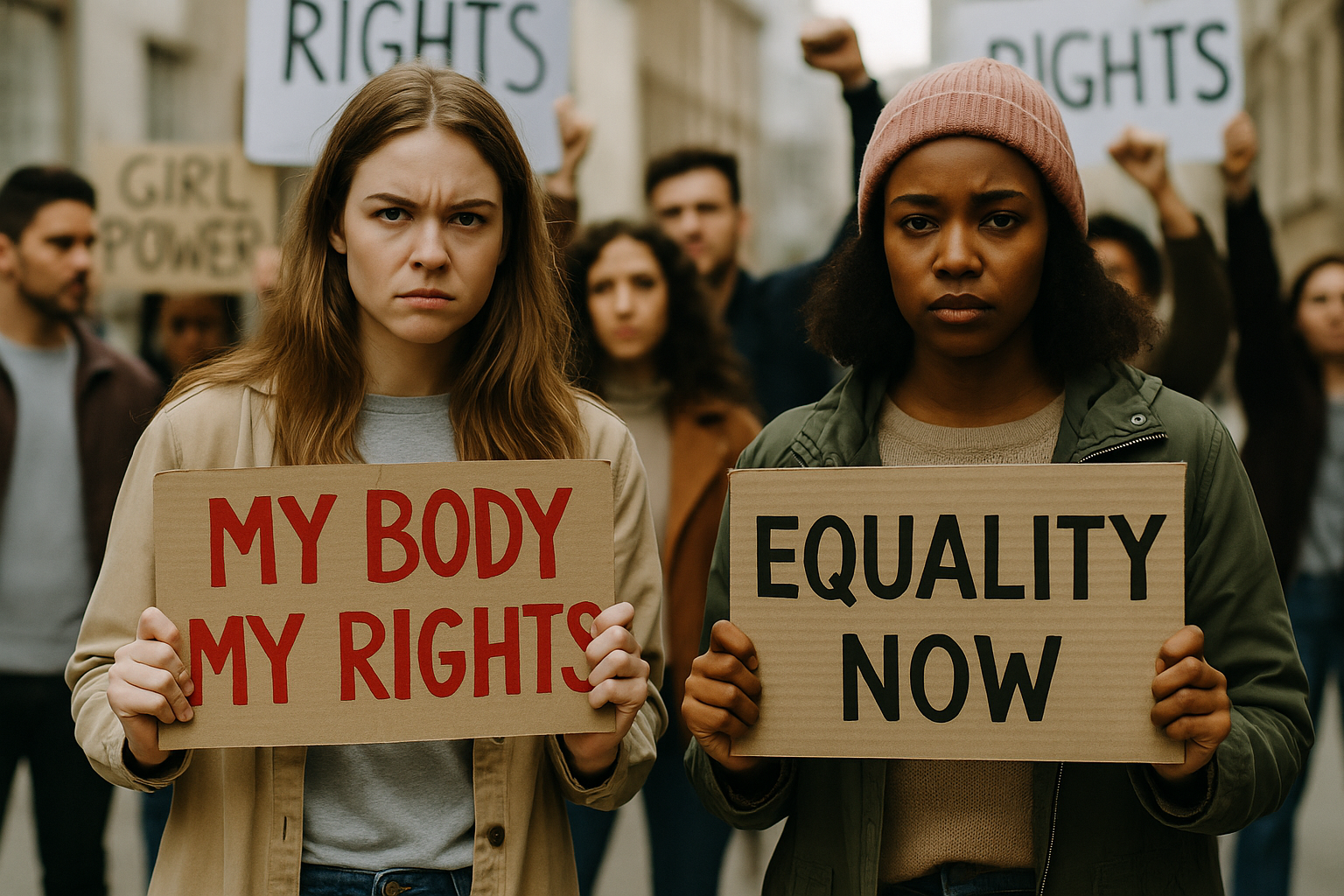In 2022, the Pew Research Center reported that while most Americans support gender equality in principle, only 61% of women and just 40% of men identified as feminists.
Think about that.
A movement whose core definition is “the belief in the social, political, and economic equality of the sexes” still triggers enough discomfort, confusion, or outright disdain that nearly half of women and most men don’t want to claim the label.
So what happened?
The Branding of Feminism
Feminism has never had the luxury of being apolitical or universally accepted. From the beginning, it’s been branded as a threat — and intentionally so. Suffragettes were called hysterical, unladylike, immoral. Second-wave feminists were caricatured as man-hating radicals. Third-wave feminists were mocked as over-sensitive. Fourth-wave feminists are now smeared as cancel-happy social justice warriors.
It’s not an accident. It’s design.
The term “feminist” is no longer defined by its mission — it’s defined by how uncomfortable it makes those who benefit from inequality. Which is exactly how patriarchy protects itself: by vilifying anything that seeks to disrupt its structure.
Call yourself an environmentalist? Applauded.
Call yourself a feminist? Suddenly you’re “too much.”
The backlash is not new — it’s just been rebranded in cleaner packaging.
Media Portrayal and Social Backlash
The media has done no favors in repairing feminism’s public image. News outlets often flatten the movement into extremes: women screaming, protesting, burning bras, or demanding unrealistic standards. On social media, feminism is diluted into Instagram-ready quotes that say “empowerment” but steer clear of systems, power, and policy.
And when feminists challenge that narrative? They’re dismissed as angry. Divisive. Complicated.
The result is generations of people who may agree with feminist goals — but hesitate to associate with the name.
How Patriarchy Wins Through Misunderstanding
Patriarchy survives because it teaches us to distrust feminism more than we distrust injustice.
If you believe feminists are angry, man-hating extremists, you’ll tune them out. You won’t read the policy they’re challenging or listen to the stories they’re sharing. You won’t recognize the systems they’re trying to dismantle — because you’ve already decided they’re the problem.
This isn’t by accident. It’s how systems of power silence change:
- Dismiss the messenger
- Dilute the message
- Distract from the truth
Reclaiming Feminism Without Apology
Here’s the truth: feminism should be uncomfortable.
It asks us to confront everything we’ve been taught to normalize.
It asks us to admit we’ve been complicit.
It asks us to stand up for those we’re told to step over.
And that’s exactly why the label matters. Not because it’s easy — but because refusing it allows those in power to define the terms of the fight.
Feminism is not a slur. It’s a lifeline.
And it should be spoken clearly, without apology.

